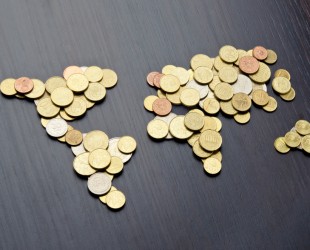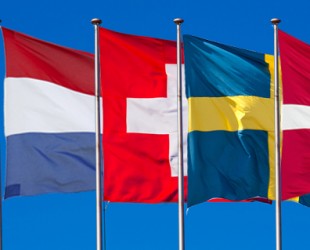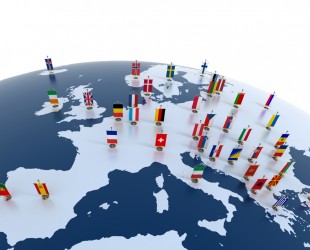Key Issue:The Central Role of European Governments in NGO Funding
Overview
Germany is one of the leading countries worldwide in providing development aid. In absolute terms Germany (€10.2 billion) was the second largest bilateral donor after the United States in 2011. Germany committed itself to increasing its development aid budget to 0.7% of gross national income (GNI) in 2015.
The Ministry for Economic Cooperation and Development (BMZ) is the lead ministry that develops the guidelines and fundamentals of development policy, and was granted a budget increase of 13.5% for 2016. As stated by BMZ, “The additional funding will help us… increase our important cooperation with civil society, faith-based organisations, German municipalities and the private sector.” In line with this aim, 12.7% (€942.8 million) of the 2016 BMZ budget is directly allocated to “civil society and business groups and institutions.”
BMZ views its partnership with civil society as focal to development aid, and has published a detailed strategy for “government-civil society cooperation in post-2015 development policy.” This cooperation is manifest in a number of joint programs sponsored by the German government, which provide consultation platforms and financial assistance to NGOs and involve them in decision-making processes.
As an example, the “Working Group on Peace and Development” (FriEnt) is an association of nine governmental organizations, church groups, NGO networks, and political foundations – all under one roof. According to its website, FriEnt’s purpose is to exchange information, promote “networking and cooperation,” and “build capacities.” As another example, the Civil Peace Service (ZFD) is a BMZ-funded program that “supports projects aimed at non-violent conflict resolutions in various countries worldwide” and “seconds experts to assist local partner organizations.” The ZFD consortium is compiled of independent NGOs, NGO networks, and church organizations, alongside the German Agency for International Cooperation (GIZ) – a federally owned enterprise whose mandate is to “support the German government in achieving its objectives in the field of international cooperation for peace and sustainable development.”
This makes for a multi-branched, intertwined system involving actors with openly religious and/or political agendas, including political foundations associated with German political parties (Stiftungen), church groups, and independent development NGOs. These actors are often members of multiple government programs and networks, amplifying their ability to impact German government policy, and allocate millions of euros to Israeli and Palestinian political advocacy NGOs active in the Arab-Israeli conflict.
As seen below, a small number of donor organizations have shown due diligence and terminated their funding to certain NGOs after being made aware of their activities. However, continued funding to these NGOs via other channels implies a lack of coordination between German donors and insufficient monitoring of grantees’ activities.
Selected Examples of German Funded NGOs
- Coalition of Women for Peace (in 2015, NIS 99,877 from German NGO Kurve Wustrow and NIS 84,550 from church aid group Bread for the World): Initiated the “Who Profits?” campaign and database, which identifies targets for anti-Israel BDS. CWP officials have been photographed holding a flag of the Popular Front for the Liberation of Palestine, an EU-recognized terrorist organization responsible for numerous attacks against civilians. Following a publication by NGO Monitor, this image was removed from CWP’s Facebook page.
- Zochrot (NIS 60,235 from Rosa Luxemburg Stiftung in 2014; NIS 176,290 from church aid group Misereor in 2015): Campaigns for “right of return”; supports “one-state framework” and the elimination of the Zionist State of Israel. A former German funder of Zochrot, the government-sponsored organization Remembrance, Responsibility and Future (EVZ), terminated its funding to the NGO on the grounds that it promotes a Palestinian right of return for refugees and their descendants.
- Miftah ($24,416 from Heinrich Boell Stiftung in 2011; $44,702 from Konrad Adenauer Stiftung [KAS] in 2012; $42,293 from GIZ in 2014): Issued publications accusing Israel of “massacre,” “cultural genocide,” “war crimes,” and “apartheid.” Published an article repeating an antisemitic blood libel, claiming that Jews kidnapped and murdered the children of Christians to use their blood as part of a religious ritual during Jewish holidays. Following significant public criticism, Miftah removed the article but attacked the blogger who exposed the article for “smearing” the organization and downplayed the centrality of the blood libel in the article. In March 2015, Michael Brochard, head of KAS Israel, stated: “Since all forms of antisemitism are intolerable for us, the Konrad Adenauer Foundation has not continued the cooperation with Miftah…” Although KAS terminated its cooperation, the German federally owned enterprise GIZ has launched a new multi-annual project with Miftah as lead implementer, to be ended only in 2019. Amounts of funding are not disclosed.





